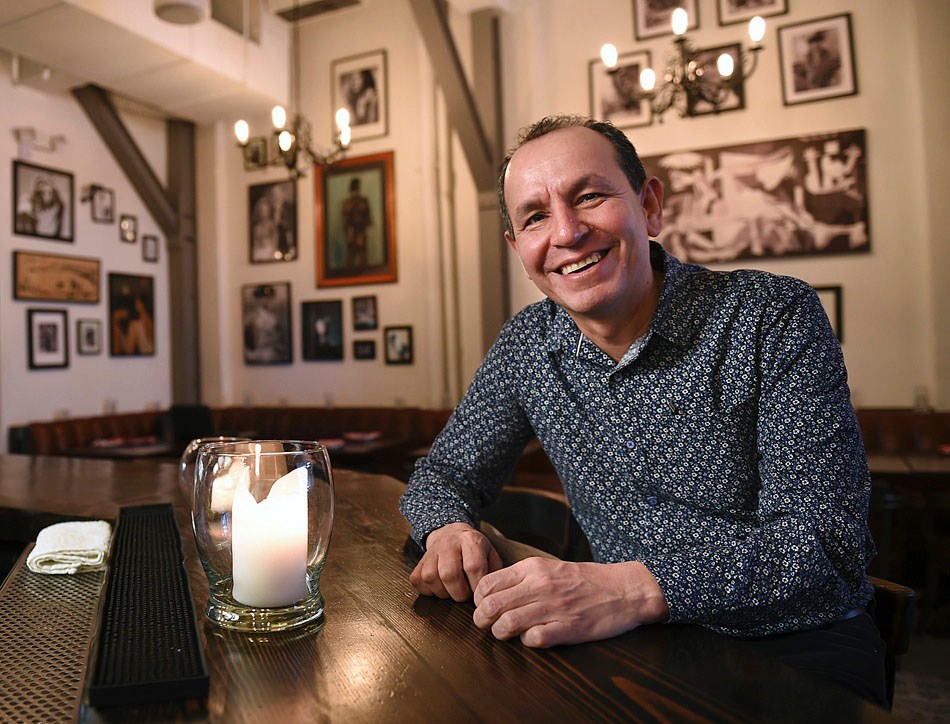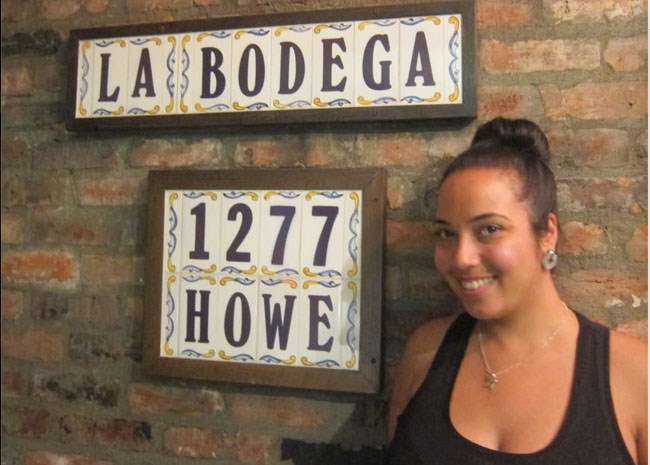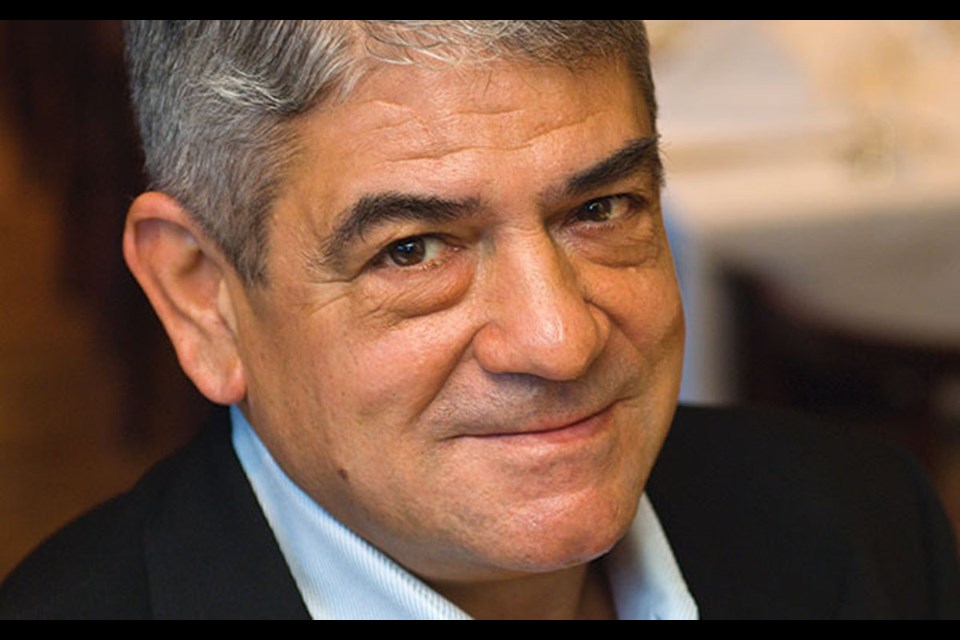Saturday’s celebration of life for Paco Rivas at Bodega on Main gave the Â鶹´«Ă˝Ół»Courier an opportunity to talk to some of the people whose lives he touched.
Mario Enero
Paco Rivas not only knew how to be successful as a restaurateur, he knew how to share his knowledge with others, says Mario Enero, who recently became the first inductee into the Whistler Restaurant Hall of Fame.
“Paco was a wonderful person to help anyone in the business,” Enero says. Whether it was to mentor another restaurateur or a young staff member (see Sarah Testa’s story below), Paco always made time for others. “He was a very good cook and he always showed people how he expected it to be done.”
What drove him, Enero says, is passion. “He had a passion for the people, what he liked and how he liked to give to others.”
Asked about one of his favourite memories, Enero’s face lights up when he describes cooking paella over an open fire in a park in Whistler. “That’s the way it’s done in Spain,” Enero says, adding, “I will miss him. I don’t have the words to express it — all the times as a friend and colleague. We shared a lot.”
Ěý
Cosmo Piccirilli
“Paco and I go back to day one,” says Cosmo Piccirilli, the manager of the Sutton Place Wine Merchant and one of Vancouver’s most urbane restaurant managers.
When Piccirilli first arrived in Â鶹´«Ă˝Ół»in the early 1970s, he was living in an apartment in the West End; he had a passion for fresh food and no place to grow it. When the Rivases purchased their first home on West 23rd, their backyard became Piccirilli’s backyard. The Rivases opened their garden to Piccirilli and, in return, Piccirilli shared his knowledge of how to make things grow.
“We did the first vegetable garden together,” Piccirilli says, adding that Paco was always by his side, planting, digging, pruning, harvesting. In the days before farm-to-table became a food trend, he notes with pride that they were the first in Â鶹´«Ă˝Ół»to grow globe artichokes. “People said it couldn’t be done and we did it.”
The garden(s) eventually expanded to include everything from grape vines — they did their first vintage in 1974 using barrels they bought on Brady Street in New Westminster — to figs — “the best figs in all of Vancouver.” They also turned their attention to the kitchen where they made prosciutto, sausage and capocollo together.
One only wishes they could be a guest at the Rivas/Piccirilli Christmas Eve dinners which were, in Piccirilli’s memory, legendary. “They were unforgettable, seriously.”
Asked about Paco’s talents as a restaurateur, Piccirilli says, “You have to believe in what you’re doing and be prepared to be getting married to the job.”
“In my opinion,” he adds, “Paco had big willpower plus the strong Sharon beside him. She is the person who looked after him with passion, love and caring. She’s really, really — well, I don’t know anyone who could have done anything more or better than she has done for Paco.”
Ěý
Tim Pawsey
In the days before Yelp and Urban Spoon, the tried-and-true method of discovering the best place to eat in a new town was simple: you asked the locals.
“When I came to Vancouver, the first restaurant I went to was La Bodega,” says Tim Pawsey, whose Hired Belly column in the Courier reflects his decades’ worth of knowledge of Vancouver’s food scene. It was 1974 and he was living in what was then the Villa Hotel. Restaurant choices were few. “If you wanted to go out for dinner it was Mr. Mike’s or the William Tell or Hy’s. There wasn’t much else.”

But, like the local residents who directed him to La Bodega, it quickly became his go-to place.
La Bodega was not only the first restaurant to introduce Vancouverites to tapas, but it also stayed open late and made everyone feel welcome.
“For the Spanish community, it was legendary for soccer games,” he adds. “Paco was a huge Real Madrid fan and the soccer games were shown any time day or night.”
As much as Pawsey loves Bodega’s honest, rustic foods, it’s the people who make it — and Bodega on Main — a place that engenders deep loyalty. “They’re always welcoming,” he says. “Look at this place,” he says, gesturing to the crowded new version of the venerable institution. “It’s amazing. They’ve managed to impart the personality in this room.”
Ěý
Hector Medina
At the memorial, someone told Hector Medina that the staff at La Bodega and Bodega on Main “make each individual feel as if they are the most important person in the restaurant.”
That’s exactly how Paca wanted it, says Bodega’s general manager.

It didn’t matter whether you were rich or poor, well-known or a stranger. Paco treated each guest, and each staff member, with respect.
“Paco was a very honest man,” says Medina, who started at La Bodega 14 years ago. “He was extremely hard working and always doing something. He was also very fair, very respectful. He was always himself — very direct in what he wanted you to do. He was a good mentor; very business-minded but also very in touch with the staff.
“I don’t recall him ever in a bad mood. He was a very, very happy man and happy that I was there, and he showed it to the end.”
Ěý
Sarah Testa
Sarah Testa was 15 when she got a job washing dishes at La Bodega every Sunday. She’d moved out of home and was fending for herself, which wasn’t easy. Staff got paid on the second of every month but her rent was due on the first. Somehow she had to screw up her courage to ask Paco for an advance.
“I was so scared,” she remembers.

Thinking she was just a kid with a weekend job, Paco asked her why she wasn’t living with her family. He listened attentively to her story, nodded his head and then quietly gave her $300, enough to cover her portion of her shared living arrangements. For a long time after that, at the end of her last shift of the month, he’d come downstairs and give her an envelope with the money. “Make sure you spend this on your rent,” he’d tell her, often acting as the teenager’s reminder that the payment was soon due. He also made sure she got a meal at the beginning and end of every shift.
Testa worked her way up through the ranks and still works at Bodega one shift a week out of loyalty and fondness. (She’s a manager at Via Tavere Pizzeria the rest of the week.)
“He’s the one who taught me everything I know,” she says. “He was generous yet so tight, right down to letting you know that a straw cost two cents. He made us think about the numbers.
“If you did something wrong, he didn’t have to say anything. He’d just look at you. It was like disappointing Dad.”
Ěý



